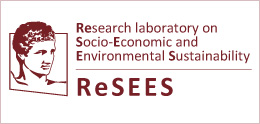(FP7) CIGESMED: Coralligenous based Indicators to evaluate and monitor the "Good Environmental Status" of the MEDiterranean coastal waters
Coralligenous based Indicators to evaluate and monitor the "Good Environmental Status" of the MEDiterranean coastal waters
CIGESMED’s goal is to understand the links between natural and anthropogenic pressures and ecosystem functioning to define and maintain the Good Environmental Status (GES?) of the Mediterranean Sea, by studying the typical, complex and not well known habitats built by calcareous encrusting algea, the coralligen. [1]
An integrated approach of complexity of coralligen will permit to mutualize and visualize large data collections, and manage knowledge to study ecosystems. Indicators, from communities to infra-specific level (DNA), will be co-constructed and tested by scientists, marine natural parks and reserves, and through the implementation of a “citizen science” network. The use of trees of knowledge as tools to sort, organize and illustrate very large heterogeneous sets of data will constitute an original approach. The outcome will be an integrative assessment of the GES within the Marine Strategy Framework Directive.
CIGESMED gathers scientists from France, Greece and Turkey, making it possible to access to sites and to work on the same issues in both the northwestern Mediterranean basin and the Aegean-Levantine one. Ten laboratories of marine ecology are involved. It will also involveobservers from other Mediterranean countries.
Coordinated by: IMBE, a unit of research of Aix-Marseille University, CNRS-INEE,IRD and University of Avignon.
Funded by: European Commission, DG Research and Innovation, FP7
Website: www.cigesmed.eu




 76 Patission Str.
76 Patission Str. 30 2108203 455
30 2108203 455
